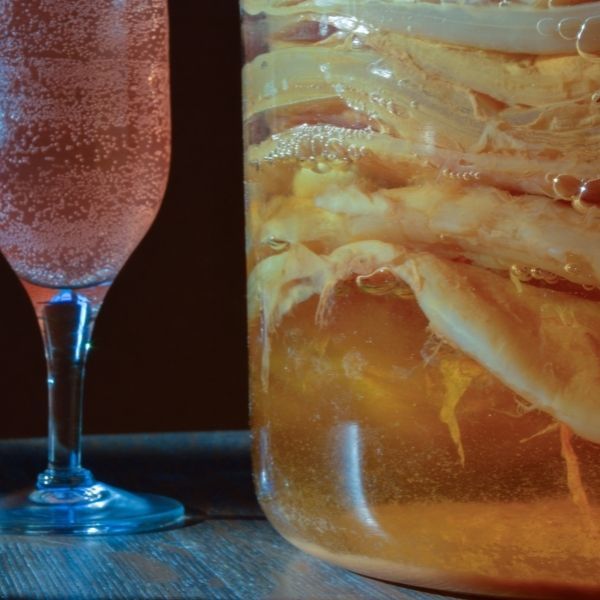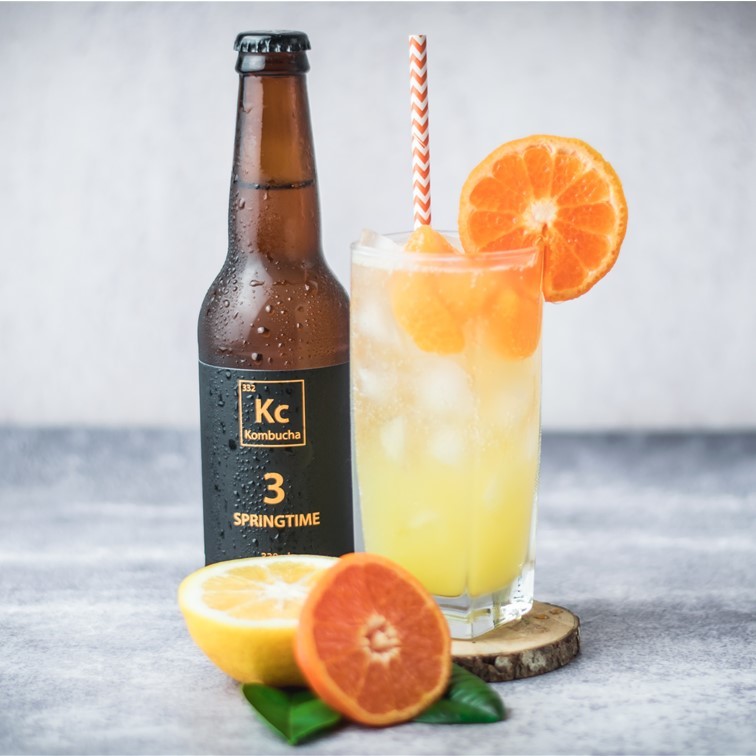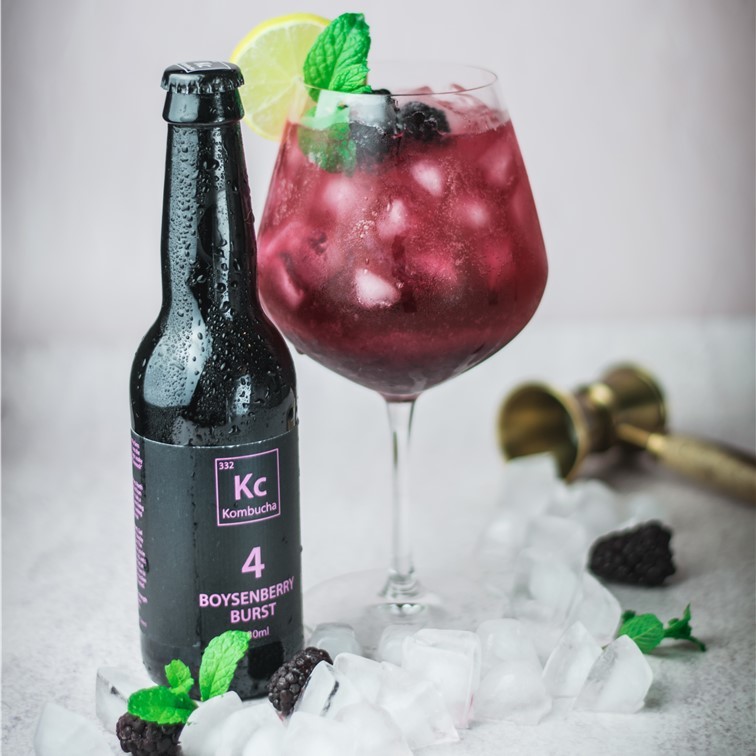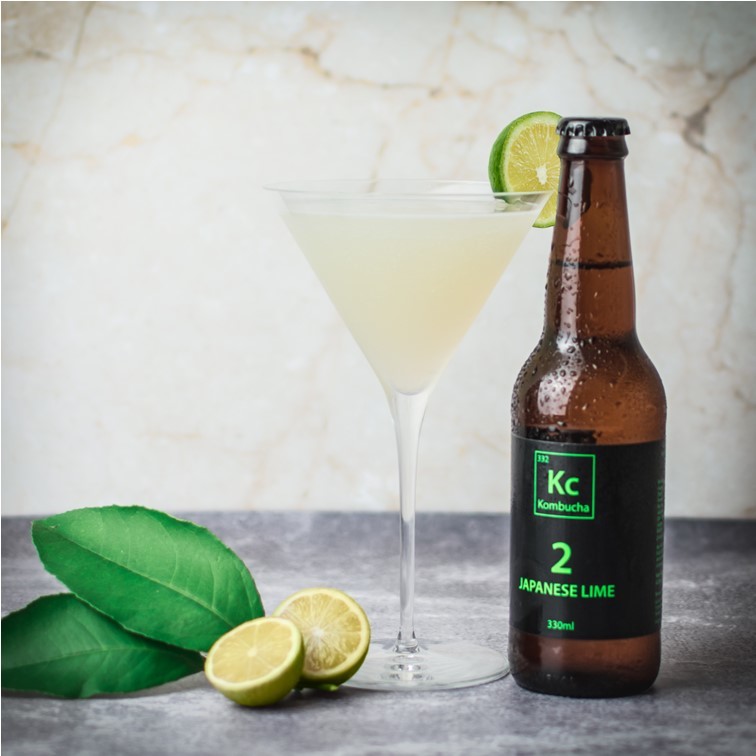What's the buzz about kombucha?
Naturopath and Kombucha City founder Gail Matthew gives us the lowdown on why this low-sugar tasty drink is your body’s new fermented friend.

If you have heard someone order kombucha at a café or seen a friend quaffing it from a wine glass at a party, you could be curious about the sudden rise in popularity of this drink. But before you dismiss it as the latest fad, you might want to check out its history and health benefits.
What is kombucha?
In recent years, as we’ve become more aware of the importance gut health has on our overall wellbeing, it’s progressed from being solely the domain of home-kitchen brewers to become a popular, commercially bottled drink.
It often comes in different flavours and can be enjoyed on its own or used as the basis of an alcoholic or non-alcoholic cocktail.
And the health benefits?
Because it’s fermented, kombucha is considered a good source of probiotics, which help promote digestive health, increased energy and a healthy metabolism.
There are hundreds of different species of probiotics living in our digestive systems and it’s important to replace them from a variety of sources.
That’s because the environment in our gut, our microbiome, needs a balance of good and bad bacteria to maintain a healthy digestive system, which in turn impacts every system in our body.
Food is fuel for human beings and our digestive system breaks down that fuel, extracting the nutrients and sending them around our bodies to sustain life.
If you are giving your system the right fuel and replacing the bacteria your gut needs to deal with it, everything will run better and you will feel healthier.
For example, did you know that 80 per cent of our immune system lies within the gut? Getting the right probiotics to balance our microbiome has an immediate flow-on effect on that immune system. It means you won’t get sick so often or expend so much energy fighting off infection. That’s vital for our health whether we are dealing with a global pandemic or just trying to avoid a winter cold.
What’s all the fuss about fermented food and drinks?
Fermented foods have been part of the human diet for thousands of years and nearly every civilisation has at least one included in its culinary heritage.
Before we had refrigeration, our grandparents and great-grandparents fermented foods to preserve the nutrients and enable them to be stored longer.
But as refrigerators became more common in Kiwi households after World War II, fermented foods became less popular.
And when fermented foods disappeared from our tables, we also lost their health benefits. This is one of the reasons we have seen a greater prevalence of auto immune diseases, allergies and skin disorders.
Those conditions can be helped and supported by a diet that’s rich in probiotics. To do that, you need to consume a range of fermented foods because they all offer different types of probiotics.

So, alongside kombucha, look at increasing your consumption of food and drinks such as cultured yoghurt, sauerkraut, kimchi, miso, sourdough bread or fermented sausage.
What to look for when buying kombucha
Not all kombucha is created equal. A traditionally brewed, fermented, raw, unpasteurised kombucha is the only way to truly benefit from the full spectrum of health benefits on offer. Here are a few things to look out for when purchasing a quality kombucha product:
- Does it need to be stored in a fridge? An unpasteurised kombucha needs to be kept refrigerated.
- Sugar content – it should be low-sugar but not no-sugar. A traditionally brewed kombucha will have some sugar in it still, otherwise it will taste like vinegar. There should be no need for added sweeteners, natural or otherwise.
- Taste - a fermented kombucha will taste slightly tangy, slightly sweet, possibly a little sour, depending on your palette. It should not taste too sweet or too tangy. Also if the flavour tastes washed out, then the kombucha brew may have had water added before being bottled. Some companies do this to reduce the sugar content, but unfortunately it also reduces the health benefits.
- Probiotics - the probiotics appear naturally in a traditionally brewed kombucha, without needing to be added. You would not normally find them listed as ingredients on the bottle.

Kombucha is a delicious, versatile way to start your journey with fermented food. Why not give it a go?








